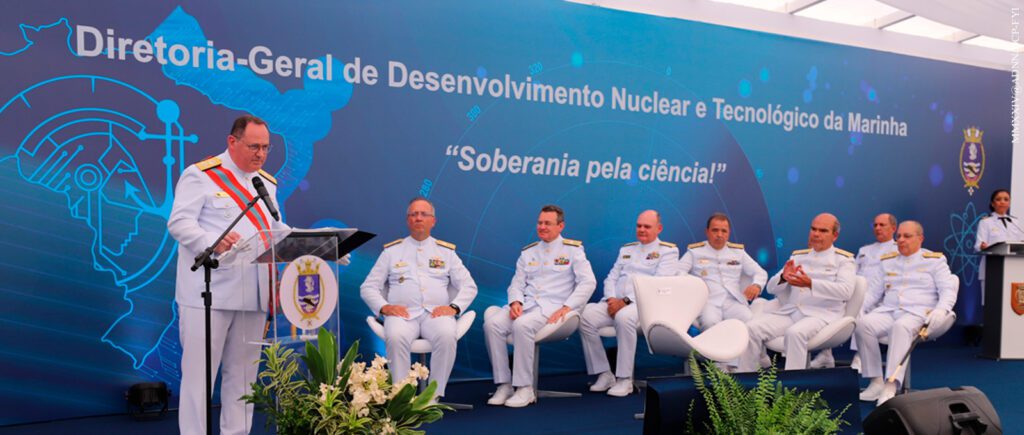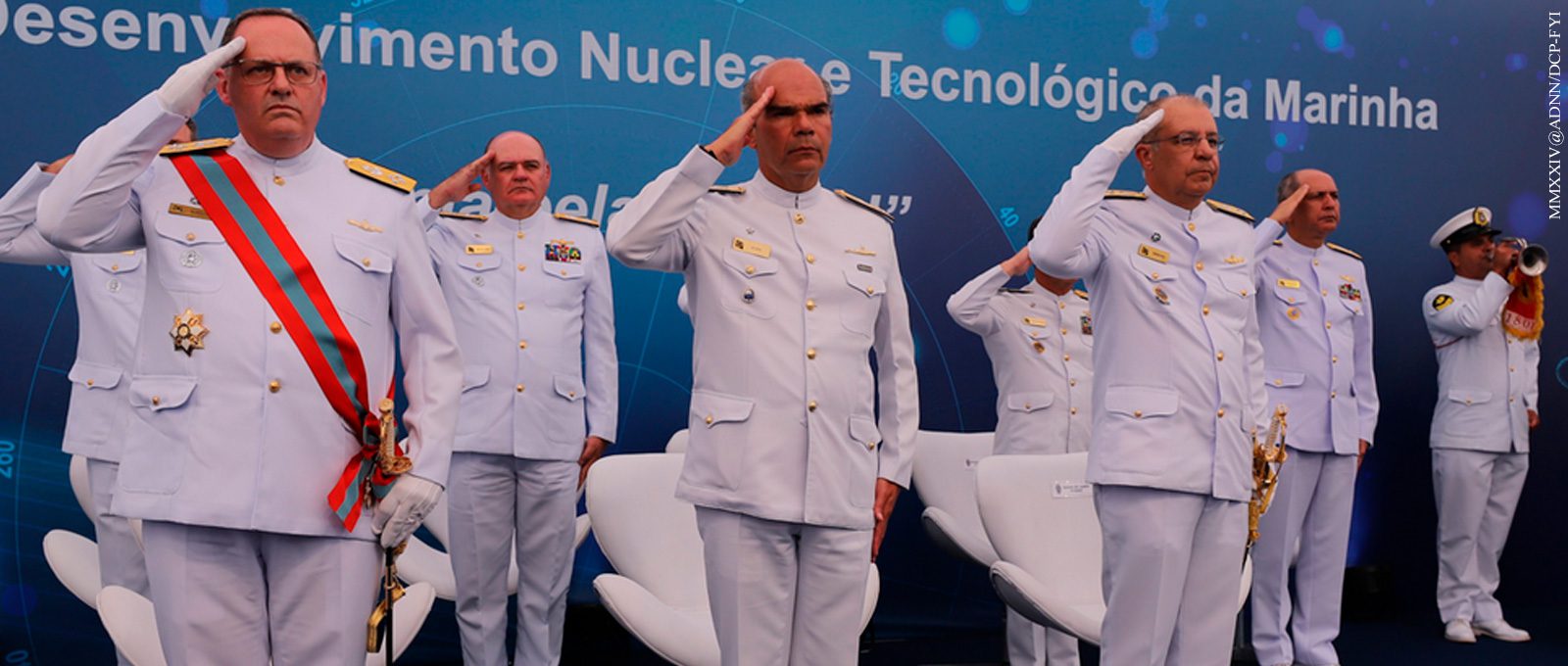Fleet Admiral Rabello to command strategic military organization for national defense
By Edwaldo Costa – São Paulo, SP
The Admiral of Fleet Alexandre Rabello de Faria took up the post of Director General of Nuclear and Technological Development of the Navy (DGDNTM) on Friday (5), during a ceremony presided over by the Commander of the Navy, Admiral Marcos Sampaio Olsen.
The event was held at the Navy Technology Center Complex in São Paulo (CTMSP), and was attended by former Navy Commanders, members of the Admiralty, industry, the Friends of the Navy Society, the scientific and technological community, as well as other military and civilian authorities from Brazil and abroad.
The new Director General, President of the Council of Delegates to the Inter-American Defense Board between 2021 and 2023, replaced Fleet Admiral Petronio Augusto Siqueira de Aguiar, who had been in charge since December 15, 2021.
The DGDNTM, as a Sectoral Management Body, plans, guides, coordinates and controls nuclear, scientific, technological and innovation activities. It acts as the central executive body of the Navy’s Science, Technology and Innovation System, in order to contribute to: the preparation of the Navies of Tomorrow and the Future; the application of Naval Power, in activities related to science, technology and innovation; the Submarine Development Program (PROSUB), and the Navy’s Nuclear Program (PNM).
Admiral Rabello said he was ready for the new challenge and explained that, historically, the Navy’s scientific and technological coordination has been concentrated in Rio de Janeiro, where it continues to develop various projects aimed at contributing to the preparation and application of Naval Power. And that, in July 2023, the DGDNTM strategically moved its headquarters to the city of São Paulo, occupying space in the University City, next to the Institute of Energy and Nuclear Research – IPEN, with which the Navy has had a partnership for around 70 years.
“Rio de Janeiro is home to the Navy Research Institute, the Almirante Paulo Moreira Institute for Studies of the Sea and the Center for Naval Systems Analysis, which carry out programs related to weapons systems; sensors; electronic warfare systems; underwater acoustic systems; digital and computerized systems; materials technology; cryptology and systems security assessment; modeling and simulation; operational research; oceanography; meteorology; marine biotechnology; remote sensing; and coastal and ocean engineering. In addition to these research areas, there are others of interest to the Marine Corps, the Navy Health Directorate and the Hydrography and Navigation Directorate, with projects developed by the respective Science and Technology Institutions. There were several reasons for moving the headquarters of this Directorate General to São Paulo, among them to increase the representativeness of the Navy in the state of São Paulo. The move also signals that we are making progress towards achieving the main objective of the Navy’s Nuclear Program (PNM) and the Submarine Development Program (PROSUB), which is to obtain Brazil’s first conventionally armed nuclear submarine. Our first nuclear submarine will bear the name of the illustrious patron of Navy Science and Technology, Admiral Álvaro Alberto, pioneer of the Brazilian Nuclear Program and responsible for the proposal to create the National Council for Scientific and Technological Development (CNPq), of which he was the first president,” said Admiral Rabello.

Also according to the new Director General, cooperation between the Navy and the Brazilian scientific community has brought the country major and unique gains, such as mastery of the nuclear fuel cycle. “The scientific, technological and industrial challenges will continue, and it is up to the Navy, through the DGDNTM, to strengthen the scientific and research support ecosystem and consolidate the related industrial and supply chains, which are necessary to provide solidity and continuity to both the PNM and PROSUB. Strengthening and intensifying this cooperation is a commitment I have made and one on which we will work with energy, focus and priority, to transform knowledge into innovation,” said Admiral Rabello.
*** Translated by DEFCONPress FYI Team ***
